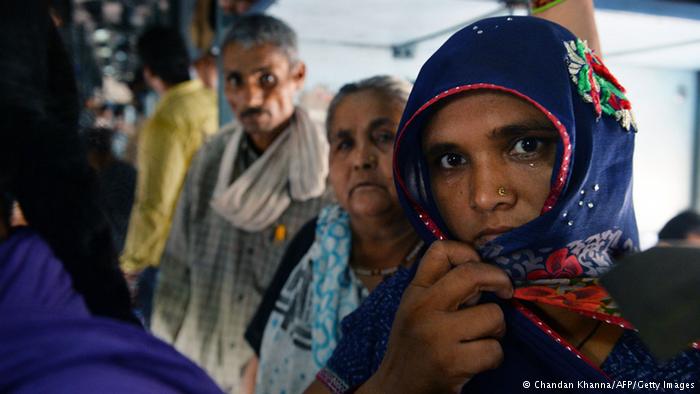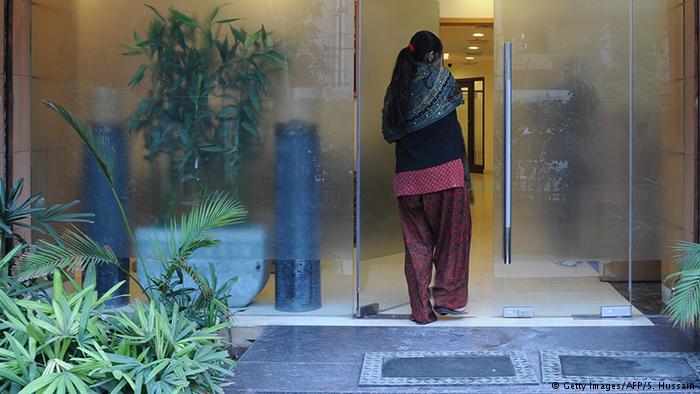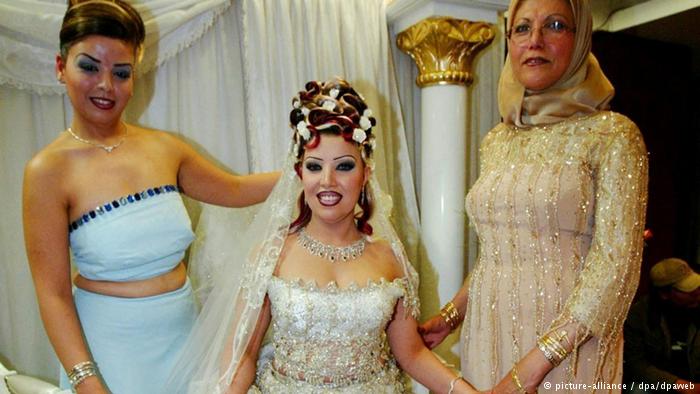Are media to be blamed for gender stereotypes?
Are the media making big mistakes in the way they represent women? What about how they ‘show’ violence against women?
I saw an ‘accused,’ who was leaving the court. The person was wearing black jeans, black tee shirt and had beautiful light brown hair. She was a little sad but confident.
Have you ever imagined such a description of an accused, where just physical appearance, dress and hair color are mentioned, rather than the nature of the crime that person was charged with?
I saw such a description, when a female model, Ayyan Ali, was arrested and charged with money laundering. Almost every news channel at national level presented the story in the same way. I have not seen any channel, who focused on the nature of crime or expected punishment.
This is an example of media’s approach in presenting women. From news channels to soap operas, and from talk shows to commercials, women are presented in a stereotypical way. I believe that this kind of presentation is very damaging for women and girls in the real world.
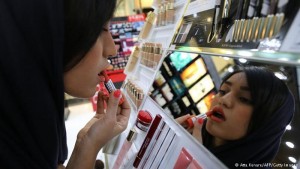 In the 21st century electronic media have become a very powerful tool to influence people’s opinions and attitudes. Media seem to try to reinforce the stereotypical views in general public by their biased presentation of gender.
In the 21st century electronic media have become a very powerful tool to influence people’s opinions and attitudes. Media seem to try to reinforce the stereotypical views in general public by their biased presentation of gender.
Although false representation of women is a global trend the worst situation is in the South Asian region. Where women and girls are predominantly shown in their private spheres, doing domestic chores and caring for the family and children.
Apart from this, another trend that I have observed in the media in South Asia is that electronic media try to normalize and glamorize the act of domestic and sexual violence against women. In most of the TV dramas heroes are shown as aggressive and violent and heroines are shown as submissive subordinates. Such representation of gender encourages men to be violent against women and at the same time women are given a concealed message that they should be submissive in order to be desirable for men.
This sort of media content influences the perception of reality and it supports gender biased and stereotypical beliefs. But this situation is not limited to Pakistani or South Asian media. It is a global trend. A few weeks ago I happened to watch San Andreas, a Hollywood movie, which everyone was talking about.
I was extremely disappointed by the content of the movie. The story revolves around a man who was presented as being very brave and accomplished. He saves the women of his family during massive destruction. The women were shown as helpless and dependent on the man.
By watching this sort of content, women perceive that being dependent on men is normal and even desirable.
 Furthermore, if we see the world through the lens of media, a woman is desirable only when she is young, beautiful, thin and passive. This is very unfortunate. Due to such media content assertive and independent women may perceive themselves as undesirable and ‘abnormal.’
Furthermore, if we see the world through the lens of media, a woman is desirable only when she is young, beautiful, thin and passive. This is very unfortunate. Due to such media content assertive and independent women may perceive themselves as undesirable and ‘abnormal.’
In this way women and girls are discouraged from being independent, assertive and objective. This results in the continuation of the vicious cycle of women’s dependence and exploitation.
I feel that this false representation of women in the media is prevalent. There are also very few women in the media who are working in leading positions. If more and more women would work in higher positions, the media would possibly present women in a far more positive way.
Media can fairly be blamed for women’s subordination and degradation in the real world. I have experienced it in my own life. It was definitely because of the influence of media that my boyfriend asked me not to cut my hair for years, so that I could have hair of almost a meter long – as the heroine of a specific soap opera who actually was using hair extension to play the role of a submissive and honest house wife. And it took me years to make him understand that in real life things are very different from the world portrayed in the media.
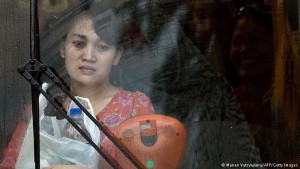 I also remember that one of my aunts used to watch a lot of TV. It was almost ten years ago when she was single. Now she has been married for almost three years. She is extremely submissive to her husband who keeps on exploiting her. And in spite of all this, she feels extremely comfortable in that abusive relationship. When I talked to her in this regard, she said that men are always violent and women are the ones who need to compromise for the sake of their relationship and family.
I also remember that one of my aunts used to watch a lot of TV. It was almost ten years ago when she was single. Now she has been married for almost three years. She is extremely submissive to her husband who keeps on exploiting her. And in spite of all this, she feels extremely comfortable in that abusive relationship. When I talked to her in this regard, she said that men are always violent and women are the ones who need to compromise for the sake of their relationship and family.
For such women physical and sexual violence are a part of a normal relationship.
Finally, I would say that to attain gender equality in the society and media, more and more women should come forward and work for the media. And media houses should try to make it sure that the content they present is not gender biased. Above all governments should introduce laws and policies for the media to keep the balanced representation of gender.
By taking these steps gender-based stereotypes could be gradually abolished in the real world and it will broaden the people’s perceptions of human possibilities. Consequently, girls and women will be able to enjoy greater opportunities in their lives.
Author: Roheena Sajid
Editor: Marjory Linardy
WTO RECOMMENDS
Step By Step, These Muslim Women Break Stereotypes
Like countless other Muslim women from conservative homes in Lucknow, Uttar Pradesh, Nasreen, too, was forbidden to step out of her home. Despite living in crushing poverty she was not allowed to look for work to chip in and make things better. For a long time she struggled on but when it became a matter of life and death, Nasreen decided to take some tough decisions. “I decided to defy everyone in my family and grabbed the first job that was offered to me,” she says. (From January 22, 2015)
Kicking out stereotypes
They started off as a secret sports club. What brought them together was their shared love for football, a game they couldn’t dream of playing because of their conservative family backgrounds. After all, how could young girls, who weren’t even allowed to step out of their homes without the hijab (veil), run around kicking ball in an open field? (From November 18, 2015)
Blacking Out Gender Bias On Screen
What do we learn about women and girls when we turn on the television or go to the movies? Around the world, female characters in films and television take far less space than male characters. They do less interesting things. They are judged by their appearance. That is Geena Davis‘ opinion. (From June 5, 2015)



